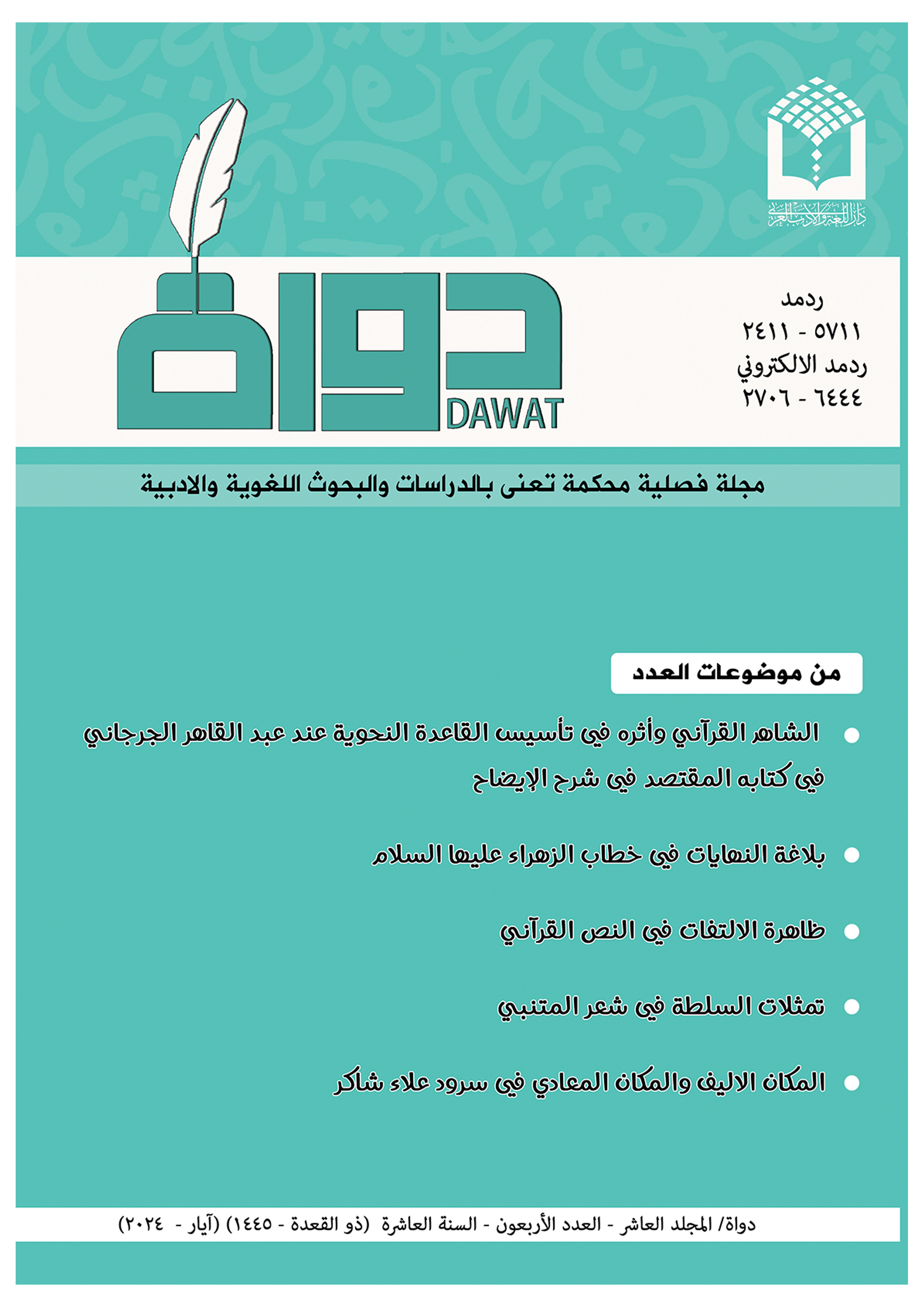Abstract
Poetic evidence has effectively contributed to establishing the grammar of the language, as well as the interpretation of the meanings of the Noble Qur’an since the first century AH. Although the early beginnings were limited to the interpretation of some strange words of the Holy Qur’an, it expanded later to include various linguistic issues. The term ‘witness’ was not known or used neither by grammarians nor by others, especially in the first century AH. So what is the witness? What is its effect on complicating the grammatical rule? There is no doubt that the Arab linguists have paid great attention to poetry and used to invoke it in various linguistic issues since it is the office of the Arabs, and the record of their feats and exploits. The invocation of poetry was the result of the first century AH when the conventional significance of the witness was clear in the mind and translated practically, even if its first beginnings were limited to clarifying some words of the Holy Qur’an and interpreting them. It would later expand to include language issues in all its sciences and various fields. The research required that it consists of three topics, preceded by an abstract and summary of the research in Arabic and English, followed by a conclusion. In the first section, I dealt with the poetic witness in language, terminology, and its importance. In the second section, I dealt with Al-Mujashi’i, his life, and his upbringing. In the third section, I dealt with: various grammatical issues, and summarized in the conclusion the most important results arrived at.
Abstract
لقد أسهمت الشواهد الشعرية إسهامًا فاعلًا في دراسة المسائل النحوية، وكذا تفسير معاني القرآن الكريم وذلك منـذ القـرن الأول الهجري، وإنْ كانت البدايات الأولى محدودة ومقتصرة على تفسير بعض ألفاظ القرآن الكريم الغريبة، لتتسع فيما بعد لتشمل مجمل القضايا اللغوية، وإنْ كان الشاهدُ بوصفه مصطلحًا - لم يكن معروفًا ولا مستعملاً لا من النحاة، ولا من غيرهم، وبخاصـة فـي القرن الأول الهجري.فما الشاهد؟ وما أثره في تقعيد القاعدة النحوية؟ وممَّا لا شكَّ فيه أنَّ اللغويين العرب قد اهتموا بالشعر اهتمامًا بالغًا فكانوا يحتجون به في شتى القضايا اللغويـة، ولِمَ لا؟ والشعر ديوان العرب، وسجل مفاخرهم ومآثرهم، فالاحتجاج بالشعر كان وليد القرن الأول الهجري، إذ كانت الدلالة الاصطلاحية للشاهد واضـحة فـي الأذهان ومترجمة عمليا، وإنْ كانت بداياته الأولى محدودة ومقتصرة على توضيح بعض ألفاظ القرآن الكـريم وتفسيرها، ليتَّسع فيما بعد ليشمل قضايا اللغة في مجمل علومها، ومختلف مجالاتها. واقتضى البحث أن يكون في ثلاثة مطالب يسبقها ملخص للبحث باللغتين العربية والإنكليزية وتلحقها خاتمة. تناولت في المطلب الأول: الشاهد الشعري لغة واصطلاحا، وأهميته، وتناولت في المطلــب الثاني: المجاشعي، حياته، ونشأته. وتناولت في المطلب الثالث: مسائل نحوية متفرقة وأوجزت في الخاتمة أهم النتائج التي توصل إليها.
